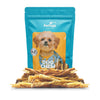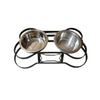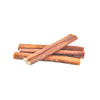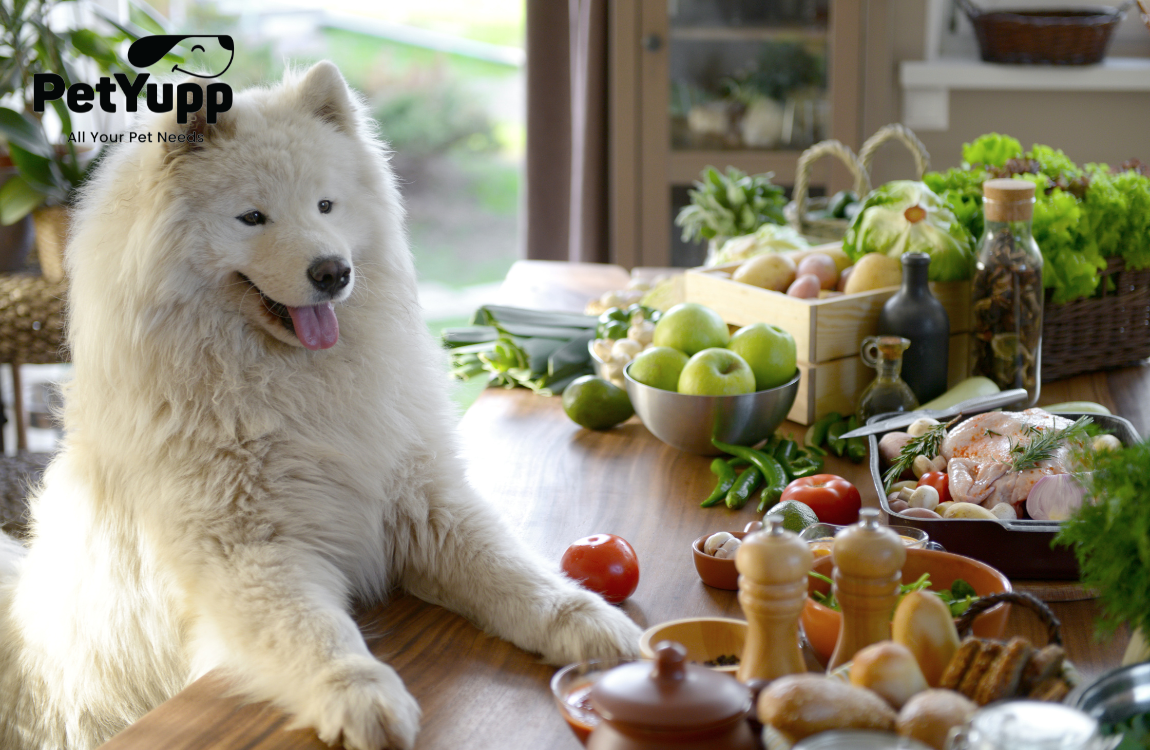Fiber is a crucial part of a dog's diet, supporting digestion and overall health in unique ways. For instance, adding fiber to dogs’ glands can assist in natural regulation, helping with gland function and weight management.
While many pet owners primarily focus on protein and fats, fiber should not be overlooked. Understanding how to integrate fiber effectively into your dog’s diet can lead to better digestive health, enhanced gland performance, and a happier, more balanced pet.
What Are the Benefits of Fiber for Dogs?
Dogs can benefit from two primary categories of fiber: soluble and insoluble fiber. Each type functions differently and provides distinct health advantages.
Soluble Fiber
- As soluble fiber moves through the digestive tract, it absorbs water, enhancing moisture levels and aiding in smoother elimination. This type of fiber can be particularly beneficial for dogs experiencing constipation.
- By slowing the digestive process, soluble fiber plays a crucial role in maintaining stable blood sugar levels. This characteristic is particularly advantageous for dogs suffering from diabetes or those at risk of blood sugar irregularities.
- Soluble fiber acts as nourishment for the beneficial bacteria residing in your dog's intestines. This contributes to maintaining a healthy gut microbiome, which is crucial for effective digestion and overall health.
Insoluble Fiber
- Insoluble fiber remains intact in water, allowing it to travel through the digestive tract with minimal alteration. This characteristic facilitates its movement through the intestines, thereby decreasing the chances of constipation.
- By enhancing the speed at which food moves through the digestive tract, insoluble fiber supports dogs in maintaining consistent bowel movements. This can be particularly advantageous for those who face occasional constipation issues.
- The inclusion of insoluble fiber in a dog's diet can promote satiety without increasing caloric intake, which is advantageous for managing weight. If your dog struggles with excess weight or has a tendency to overindulge, adding insoluble fiber can help them feel more content after eating.
How to Add Fiber to Your Dog’s Diet
Numerous natural and best sources of fiber for dogs can be seamlessly integrated into their diet. However, it is essential to consult your veterinarian prior to making any dietary adjustments to confirm that increasing fiber aligns with your dog's health requirements.
Pumpkin
Pumpkin is a commonly used and good source of fiber for dogs. The plain version of canned pumpkin, distinct from spiced pie filling, is rich in both soluble and insoluble fiber. This can help regulate bowel movements and is particularly useful for dogs dealing with diarrhea or constipation. By adding a tablespoon of canned pumpkin to your dog's food, you can support their digestive health while minimizing additional calorie intake.
Sweet Potatoes
Sweet potatoes serve as the best source of fiber for dogs. They can be prepared by cooking, mashing, and incorporating them into your dog's meals. Rich in both soluble and insoluble fiber, sweet potatoes support digestive health and regularity. Furthermore, they are abundant in vitamins and antioxidants, enhancing the nutritional value of your dog's diet.
Green Beans
Green beans serve as a highly nutritious, fiber-dense component of a dog's diet, especially beneficial for those requiring assistance with weight management. They are low in calories yet rich in fiber, making them suitable to be offered fresh, steamed, or cooked as a healthy snack or incorporated into regular meals. In addition to their fiber content, green beans are packed with vital vitamins and minerals that support your dog's overall well-being, rendering them a valuable dietary option.
Oats
Including oats in a dog's meals serves as a beneficial source of fiber, enhancing digestive health and supporting weight control. Oats are mild on the stomach, making them appropriate for dogs with dietary sensitivities. Start by incorporating a small portion—around 1 tablespoon for small dogs and as much as ¼ cup for larger breeds—into their regular food, and modify the quantity based on your dog's specific tolerance and nutritional needs.
Carrots
Carrots are a crunchy and yet another fiber-rich vegetable that dogs typically savor. They can be given raw as a treat or can be lightly steamed to facilitate easier chewing and digestion. Due to their low-calorie count, carrots are an ideal snack for dogs looking to shed pounds or maintain a healthy weight. Furthermore, they are high in vitamins, especially vitamin A, which is essential for supporting vision and immune health.
Bran
Bran serves as the best source of fiber that can be added into your dog's diet. Available in varieties such as wheat, rice, or oat bran, it offers a substantial amount of insoluble fiber. Introducing a small quantity of bran into your dog's meals can aid in digestion. Nevertheless, it is crucial to begin with minimal amounts, as excessive bran may lead to gastrointestinal discomfort.
How Much Fiber Do Dogs Need?
The fiber requirements for dogs differ according to their size, age, and particular health issues. In general, dogs need a moderate fiber intake, usually ranging from 2-4% of their overall daily diet. Fiber plays a crucial role in promoting healthy digestion, supporting glandular function, and aiding in weight management; however, excessive fiber can cause digestive disturbances.
A well-rounded diet that includes fiber sources like oats, pumpkin, or vegetables such as green beans can ensure dogs receive the necessary fiber for their well-being. It is advisable to consult a veterinarian before implementing any major dietary changes for your dog.
Incorporating appropriate sources of fiber into a dog's diet is a simple yet powerful approach to improve digestive health, support gland function, and assist in weight management. Pet owners have a range of fiber-rich options available, such as pumpkin, green beans, oats, and sweet potatoes, to enhance their dog's well-being. It is essential to implement these dietary adjustments gradually and seek guidance from a veterinarian to ensure they are advantageous and customized to the dog's requirements, leading to a healthier and happier pet.





Leave a comment